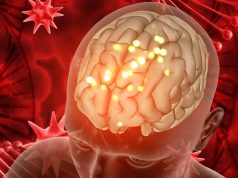Older adults who take a daily constitutional may want to avoid traffic-jammed city streets and head to a park instead because polluted air diminishes the benefits of exercise, a UK study suggests.
Researchers in London randomly assigned 119 men and women age 60 or older to take two-hour walks along one of two distinct routes: through a tranquil traffic-free expanse of Hyde Park, or along Oxford Street, the city’s bustling shopping district that’s clogged with diesel-powered buses and cabs.
The study team tested the air for contaminants during each walk, and also assessed participants for lung capacity, or how easily people could breathe, and arterial stiffness, which influences how hard the heart works to pump blood through the body.
After walking in Hyde Park, healthy participants had better lung capacity and decreased arterial stiffness, the study found. But when these people walked along Oxford Street, they experienced only a slight improvement in lung capacity and their arteries got stiffer.
“Just walking at a normal pace for a couple of hours benefits the respiratory and cardiovascular system for up to 24 hours after the walk,” said senior study author Kian Fan Chung of Imperial College London.
“This in itself is a new finding, but the most interesting finding is that being exposed during that time to environmental pollution that one encounters on a busy roadside with a lot of traffic virtually negates these benefits,” Chung said by email.
Exercise has long been linked to better cardiovascular health, and the connection between air pollution exposure and a wide range of health problems including asthma and other breathing issues is also well established.
Black soot and fine particulate matter, as well as contaminants in traffic fumes, can increase the risk of getting a variety of heart and lung diseases and of dying from them.
Air pollution is responsible for around 5.5 million premature deaths worldwide every year, researchers note in The Lancet. In the UK, polluted air contributes to 40,000 deaths each year, nearly a quarter of them in London.
The current study offers fresh evidence that short-term exposure to pollution is associated with stiffening of the arteries and impaired lung function, strengthening the case for reduced vehicle emissions and more green space for exercise in cities, the researchers argue.
All of the participants in the study were non-smokers or had quit at least one year earlier. While 40 of them were healthy, 39 participants had heart disease and 40 had a breathing disorder known as chronic obstructive pulmonary disease.
Participants were randomly assigned first to do a walk in Hyde Park or on Oxford Street, then three to eight weeks later they were asked to do the other walk.
The detrimental effects of walking near traffic were most pronounced in people with COPD. These participants reported more symptoms like cough, shortness of breath and breathing after the walk on Oxford Street than in Hyde Park, and they also experienced increased arterial stiffness.
For people with heart disease, however, medication mattered. Among these participants, people only experienced increased stiffening of the arteries on Oxford Street if they weren’t taking medication to control their disease.
Based on air quality tests during each walk, it appeared that the harmful effects of walking on Oxford Street were associated with higher exposure to two byproducts of traffic exhaust: black carbon soot and ultrafine particles in the air known as PM 2.5.
One limitation of the study is that it lacked a control group of people who spent time on Oxford Street or in Hyde Park without exercising, which makes it impossible to prove how much the physical activity contributed to any changes in lung capacity or arterial stiffness, the authors note.
Even so, the study adds to the evidence that the location of exercise matter, said Dr. Dr. George Thurston, author of an accompanying editorial and director of the Program in Human Exposures and Health Effects at New York University School of Medicine.
“Given that the elimination of fossil fuel burning will not happen immediately, the public, and especially people who are most susceptible should avoid exercising near roadways with heavy traffic of diesel vehicles,” Thurston said by email.









